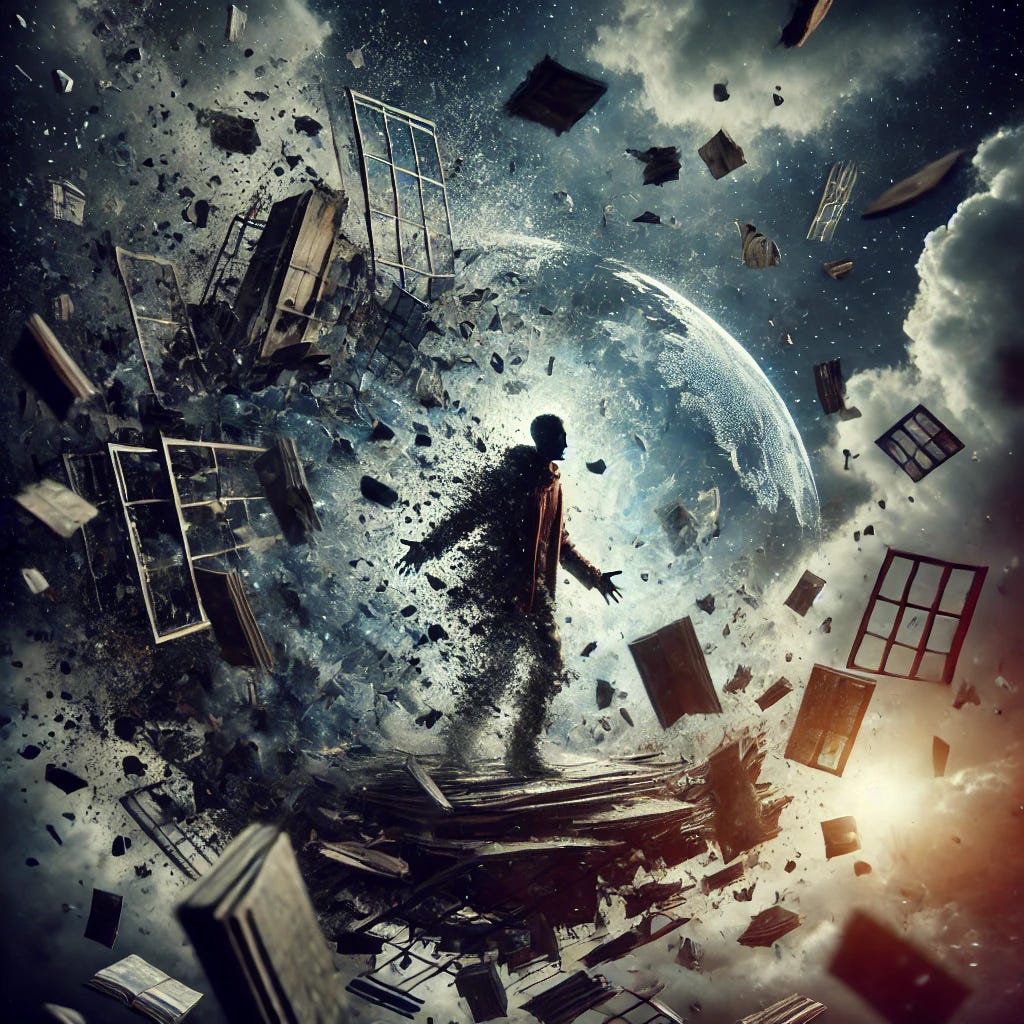Sitting in Uncertainty
The spiritual and scientific loss of a generation
There’s a lot we don’t know. In science; in the world; in our lives. A lot we try to manage through action, when the iceberg of its totality is something we can barely touch. A lot we distract from.
The main practice of our generation, it seems, is learning to be with uncertainty. The world is changing in ways we can’t anticipate, and we now know the gods of religion and science are helpful but not infallible. Scientists’ predictions on climate change are outpaced by nature’s desire to self-regulate, perhaps by getting rid of the ants that keep polluting its air. Religion’s promises of spiritual security are rocked by wars in the homeland, and divisions at home.
We, or perhaps I should say I, have spent my life grasping for certainty. Certainty in the form of a stable job, a husband, a home. I have at last found two out of these three things. But the ground still moves under me.
The heat in Texas is leading our co-owners to sell and move in 2 years. We can’t and won’t live on the farm without them, so we’re following suit.
Our family put money down for 300 acres of land in Asheville, for conservation purposes and to build a retreat center - two days before the flood wiped out any access to the property.
Our business, selling connection and communication skills, is nonviable in a struggling economy, especially one still flooded with online courses from the COVID boom.
My father died last year, and my mother is getting older.
The regulating factor in our lives used to be religion. As Martin Seligman says, “Our grandparents had comfortable spiritual furniture in which to sit.” But now, many of us have been disillusioned from our beliefs by the one-two punch of scientific skepticism, and the all-too-human nature of the institutions that peddle access to religious community. Scandals in the church; wars in Israel; the stories of our friends who “escaped” religion. No, religion is no longer the easy path it once was.
And science? We knew it once as our certainty. But, in my opinion, COVID was a great blow to the popular blind faith we put in facts, and scientists’ ability to discover them. Science could not save us from isolation, from uncertainty; there was too much conflicting data; we were, for the first time, exposed to the arguments that usually happen behind closed laboratory doors. Debate is what drives knowledge forward. But debate needs time to happen, it needs time for positions to moderate each other. We didn’t have that time. We were, as a culture, thrust into the uncertainty of science, which few of us were prepared to understand.
As a result, our certainty - about what was possible to happen in the world, and who was coming to save us - foundered, faltered, and fell.
We live in a post-certainty world.
The fascinating thing to me, as an American in my 30s, is: I wonder if any generation before our parents’ felt certain about their world? How much of our angst is born from the expectations of that strange bubble of time formed between 1945 and the 2000s, post-Great Depression and WWII, broken only in some ways by the Vietnam war? The economy boomed, jobs were plentiful, many of our modern amenities were invented (including the “suburb”).
Our grandparents remembered the trauma of the 30s and 40s, and they impressed upon our parents the drive to succeed. Our parents did so, in a relatively easy culture to create that success. Universities were affordable, as were homes. They became the boomers. They grew to expect a good quality of life. They passed that expectation on to us.
For us there is, perhaps, the double blow of both the chaotic pain of uncertainty, and the loss of the certainty we had been cultivated to expect. We are angry, regretful, confused; as are our children, who inherit not only our disillusionment but the lack of the easy world that led to it. And, aside from those emotions, we have to live with uncertainty, a notion that the prediction of endless positive rise had somewhat bred out of our culture.
I believe that a lot of the issue is not that we, as humans, are bad at dealing with uncertainty. But if we don’t have to consider it until we’re older - or, if we have no models for dealing with it, no Buddhist tradition or philosophical Stoicism - we don’t learn how. It’s as though we never learned the existence of math, like our parents protected us from its reality, until suddenly, as adults, we learned that the whole world runs on math.
The whole world runs on uncertainty.
It is the underpinning of everything. It is chaos theory. It is nature in change.
It is only us, strange creatures of our place and time, of our standardized schooling and Sunday schools, that believed it should be different.
I wrote in my article Souls with Empty Bottoms that people who have been through trauma occur as more resilient, and I think this is much of the reason. They have had to learn to live with uncertainty, with change, with disillusionment.
So, how do we find our way through?
Keep reading with a 7-day free trial
Subscribe to Sara’s Substack to keep reading this post and get 7 days of free access to the full post archives.



